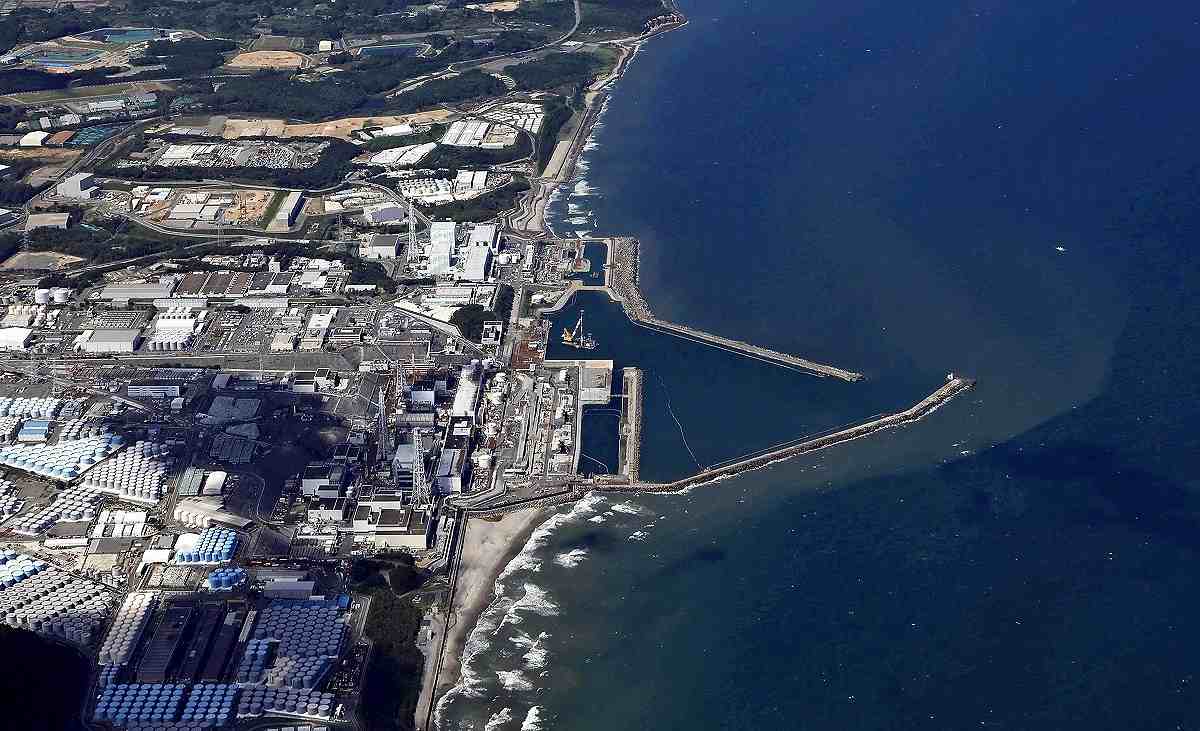Fukushima Water Issue

- 01 Apr 2024
Why is it in the News?
Recently, Japan announced that its experts have engaged in discussions with their Chinese counterparts to address Beijing's concerns regarding the release of treated radioactive wastewater from the damaged Fukushima Daiichi nuclear power plant into the sea.
What is the Fukushima Water Issue?
- In 2021, the Japanese government unveiled plans to gradually discharge over one million tonnes of contaminated water from the Fukushima nuclear plant into the ocean over the next three decades.
- The contaminated water is a residual product of the devastating 2011 earthquake and tsunami that incapacitated the Fukushima Daiichi nuclear power plant, resulting in the release of radioactive materials.
- After more than ten years of storing this wastewater, Japan asserts that they are facing storage space limitations and contends that the treated water is now safe for release.
Concerns Surrounding the Fukushima Water Discharge:
- Tritium and Carbon-14: The water from Fukushima undergoes filtration via the Advanced Liquid Processing System (ALPS), effectively reducing most radioactive contaminants to acceptable safety levels, except tritium and carbon-14.
- While both emit low levels of radiation, consumption in large quantities could potentially pose risks.
- Insufficient Research: Scientists emphasize the need for further investigation into the potential impact of the water discharge on the ocean bed and marine ecosystems.
- The Pacific Islands Forum regional group has labeled the proposed plan as "another significant nuclear contamination disaster," citing ongoing challenges faced by its member nations due to past US nuclear testing.
Pacific Islands Forum (PIF):
- The Pacific Islands Forum (PIF) is an inter-governmental organization that aims to enhance cooperation among countries and territories of Oceania, including the formation of a trade bloc and regional peacekeeping operations.
- It was founded in 1971 as the South Pacific Forum (SPF), and changed its name in 1999 to "Pacific Islands Forum", to be more inclusive of the Forum's Oceania-spanning membership of both north and south Pacific island countries, including Australia.
- It is a United Nations General Assembly observer.
- The PIF secretariat is located in Suva, the capital of Fiji.
Nuclear Incidents:
- A nuclear and radiation incident denotes an occurrence that has resulted in significant repercussions for individuals, the environment, or the facility involved.
- These may entail fatal consequences for individuals, substantial releases of radioactivity into the environment, or reactor core meltdowns.
- Globally, there have been a total of 99 incidents at nuclear power plants.
- Fifty-seven of these incidents have transpired since the Chornobyl disaster, with the United States accounting for 57% of all nuclear-related incidents.
- Noteworthy nuclear power plant mishaps encompass:
- Fukushima Daiichi nuclear disaster (2011)
- Chernobyl disaster (1986)
- Three Mile Island accident (1979), and
- The SL-1 accident (1961).
